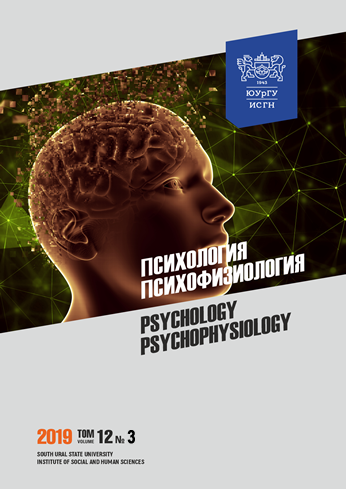COMMUNICATIVE AND EMOTIONAL INDICATORS OF PROFESSIONAL IDENTITY IN FUTURE DOCTORS
Abstract
Aim. Professional identity in modern psychological and pedagogical studies is connected with
the issues of professional self-determination, personality development, and self-actualization and
reflected in the maturity of professional self-identification. Identifying oneself with other people in
intercultural communication is a dynamic characteristic of professional identity. A positive professional
identity is provided by the confidence in the choice made and respect for profession in society.
The purpose of this article is to reveal the communicative and emotional indicators of professional
identity in future doctors, which are formed during their study in medical universities. Materials
and methods. Communicative and emotional indicators reflect the professional qualities of a
doctor directly connected with communication and the ability to control emotions in a dialog between
a patient and doctor. Such indicators include objective, standardized, and constructive communication
procedure, the ability to control one’s emotions and the emotions of other people. The
article provides the data of the empirical study of communicative and emotional indicators obtained
with the following methods: “The assessment of the correlation between ‘I am an ideal doctor’ and
‘I am a real doctor’”, “Hall’s EQ emotional intelligence test”. Fifty students from the medical university
aged from 19 to 22 years participated in the study. Statistical processing of the data obtained
was performed by means of cluster and correlation analysis (Spearman correlation analysis) with
the SPSS Statistics 17.0 software. Results. The analysis of empirical data about the correlations
between the indicators was performed, the main stages of their formation during the study in
medical universities were described. Conclusion. The communicative and emotional indicators
of professional identity in future doctors are formed during their study in medical universities.
The correlations between a standardized communication procedure, the control of one’s emotions
and the emotions of other people are genetically primary. These conclusions allow us to describe
the main stages of psychological and pedagogical provision of professional identity in future doctors:
the first stage is connected with acquiring the rules of professional etiquette, speech culture
and techniques, the methods of nonverbal communication and listening to patients; the second
stage deals with the ability to control one’s emotions and to be objective; the third stage contributes
to problem-solving skills in a form of role and business games aimed at the development of
emotional and communicative qualities.
Downloads
Copyright (c) 2019 Psychology. Psychophysiology

This work is licensed under a Creative Commons Attribution-NonCommercial-NoDerivatives 4.0 International License.



